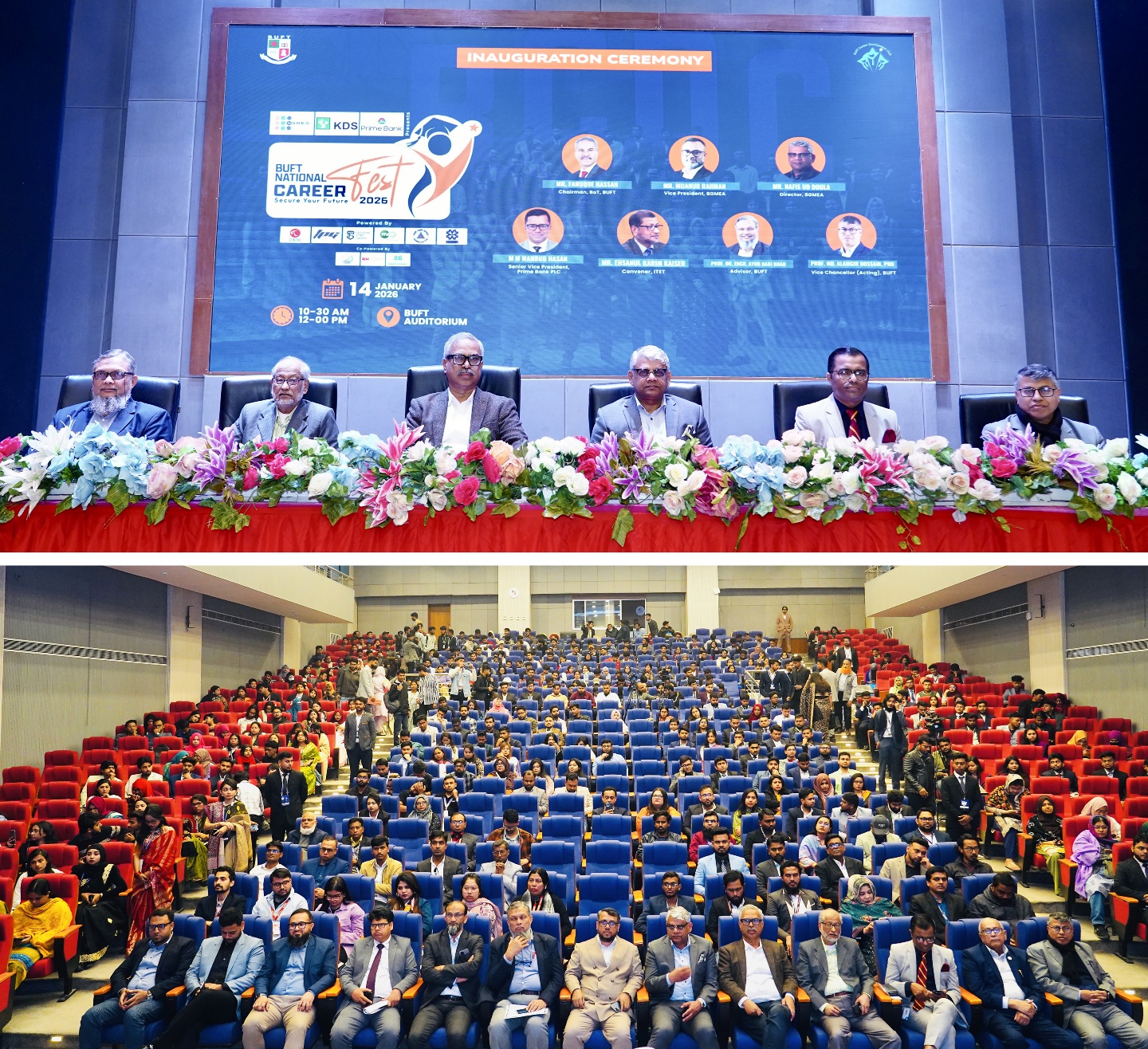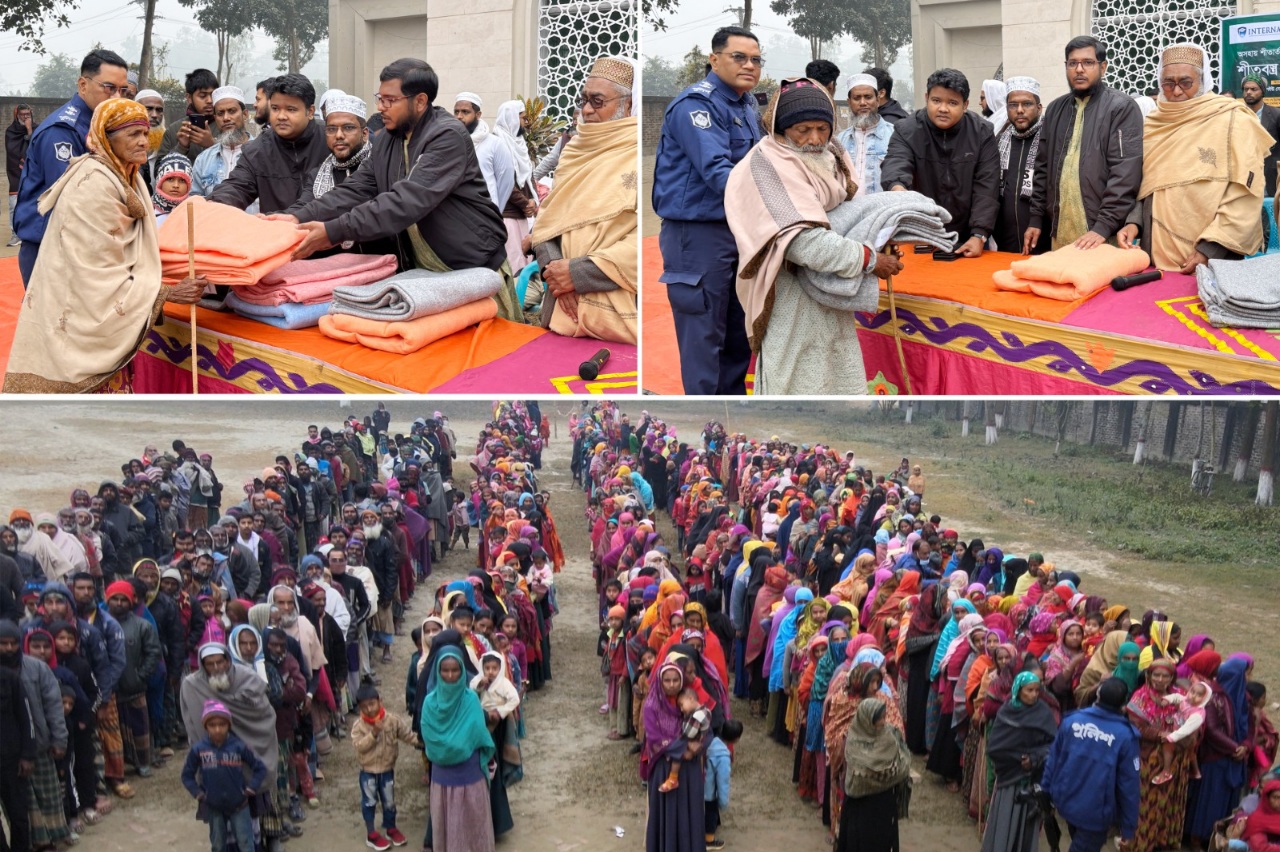
Shaping the Future of Vision: Optometrists’ Role in Bangladesh and the Global Health Sector on World Sight Day
-

- - Newsroom -
- Editor --
- ২ অক্টোবর, ২০২৫
On World Sight Day 2025, we reflect on the growing importance of vision care worldwide, and especially in Bangladesh, where the need for qualified optometrists, regulation, and strong professional recognition is ever more urgent. As preventable and treatable causes of vision loss continue to afflict millions globally, optometrists are evolving from refractive error correctors into key players in public health, early disease detection, and equitable access to care. Bangladesh stands at a crossroads: to embrace optometry fully, legalize and standardize its practice, and thereby avert needless vision loss and strengthen its health system.
The Global Context: Optometry’s Expanding Horizon Globally, vision impairment is a major public health issue. According to the World Council of Optometry (WCO), at least 2.2 billion people have near or distance vision impairment, of whom over a billion have condition that is preventable or treatable. Refractive error remains one of the leading causes of vision impairment and blindness.
The role of optometrists is expanding. In many countries, optometrists are now trained in advanced diagnostics, detection and management of eye diseases—not just prescribing spectacles. They serve in primary health care settings, sometimes in collaboration with ophthalmologists, public health agencies, and non-governmental organizations.
For example, in high-income countries and middle-income countries with good regulation, optometrists are integral to detecting early stages of glaucoma, diabetic retinopathy, and other non-communicable diseases that have ophthalmic components. They also serve in tele-ophthalmology, using fundus cameras and AI tools to reach underserved areas. Globally, regulatory frameworks such as the WHO’s Eye Care Competency Framework have been developed to ensure minimum standards of training and practice.
Malaysia provides a case in point: in 2025, the Malaysian government is preparing an Optometry Bill that will give the profession formal legal recognition. The proposed law will regulate training, registration, scope of duties, and separate optometrists from opticians. The aim is to ensure quality, safety, and consistency in eye care, particularly in rural or underserved areas. Nearly 50% of optical stores in Malaysia reportedly operate without certified optometrists.
Such regulatory progress underscores how, globally, countries are recognizing that informal or unregulated vision care risks poor diagnosis, missed disease, unsafe practices, and inequitable access.
Bangladesh Today: Gaps, Challenges and Urgent Needs In Bangladesh, optometry is still emerging. While there has been progress, there remain critical gaps in education, regulation, and recognition.
Educational capacity and standardization: There are only a handful of formal optometry (Bachelor of Optometry – B.Optom) programmes in Bangladesh, including the Institute of Community Ophthalmology (ICO) at Chittagong Medical University, Bangladesh Eye Hospital & Institute, and some private institutions. However, many of these face problems: outdated curricula, infrastructure constraints, lack of qualified faculty, and uncertain alignment with international optometry standards.
Legal recognition and licensing: Currently, there is no dedicated licensing authority or legal regulation that clearly defines what optometrists can or cannot do in Bangladesh. The profession lacks a unified governing council, and in many healthcare settings, the role and autonomy of optometrists are restricted. For example, optometrists are often not permitted to prescribe or manage in certain scopes even when trained.
Professional awareness and public understanding: Many in the public and among policymakers do not clearly understand what optometrists do beyond vision correction. Their potential in disease screening, early detection, and preventive care is under-utilized.
Workforce shortage: Bangladesh has relatively few optometrists compared to what is needed. Given population size, demographic changes (ageing, diabetes prevalence, myopia growth), and the burden of refractive error, the current workforce cannot meet the demand adequately. Also, many optometrists face difficulty working to their full potential because of legal and systemic restrictions.
Why Bangladesh Needs to Legalize and Elevate Optometry Legalization (i.e. making the optometry profession formally recognized in law, with licensing, regulation, defined scope of practice) is essential for several reasons.
When optometry is unregulated, people with vision problems may receive substandard or even harmful care. For example, optical shops without certified professionals may misdiagnose or incorrectly handle cases of ocular disease, refractive error, or safety concerns. Legal standards ensure that only qualified practitioners—trained, certified, and accountable—can practice.
Many eye diseases are asymptomatic in early stages (such as glaucoma, diabetic retinopathy, glaucoma, macular degeneration). Optometrists trained and legally empowered can detect these early, refer appropriately, and manage aspects of care. This reduces morbidity, blindness, and healthcare costs.
Ophthalmologists are limited in number and often concentrated in urban centres. If optometrists are legalized and their scope clearly defined, they can provide primary‐level eye care in more locations, reducing travel, time, cost for patients, and allowing ophthalmologists to focus on surgeries and advanced care.
With recognized frameworks like WHO’s Eye Care Competency Framework, and bodies such as WCO, nations with well-regulated optometry can participate more fully in global health initiatives, research, and funding. International funding bodies often prefer recognized professions with legal protections.
Vision impairment impedes education, employment, productivity, and can worsen poverty. Correcting vision and preventing avoidable blindness allows people to participate in education, work, and social life. It reduces health expenditures in the long term.
The WCO’s 2025 statements emphasize that optometrists are “university educated, autonomous, and easily accessible to the community,” well placed to provide refractive error correction and detection of ocular disease. WHO’s eye care competency frameworks: These define minimum competencies for eye health workers, including optometrists, to better integrate them into health systems. They promote standardized curricula, consistent licensing, and defined scopes of practice. Malaysia’s impending Optometry Act: Malaysia is moving towards legal recognition, regulation of practice and training, separate registration from optical shops, and enforcement of penalties for unqualified practice. This act is expected to raise standards and protect patients. Bangladesh official recognition by health leaders: Dr ABM Abdullah, a senior health official, has acknowledged that though optometry is a relatively new subject in Bangladesh, there is clear need and potential for optometrists to make health services more dynamic.
To realize the potential of optometrists for national and global eye health, Bangladesh should consider the following actions:
Establish a national regulatory body or council for optometry Similar to optometry councils in India and Malaysia, Bangladesh needs a legal framework to license, regulate, and monitor optometric practice. This body should define the scopes of practice, establish ethical standards, outline penalties for malpractice, and ensure the accreditation of educational programs.
Standardize education & curriculum Develop curricula aligned with international best practices (e.g., WCO, WHO ECCF). Improve faculty quality, infrastructure, clinical training, practical exposure. Ensure all optometry programmes are affiliated with recognized universities and approved by health/university regulatory authorities.
Define the scope of practice clearly. Legally define what optometrists are qualified to do: refractive services, primary diagnosis, certain treatments, referrals, and co-operation with ophthalmologists. Empower optometrists to function in primary eye care settings.
Include optometry in national health policies & preventive health. Integrate optometric services in national health plans, mobile clinics, rural health centres, school screening programmes. Use optometrists for early disease detection (e.g., diabetic retinopathy, myopia control in children).
Raise awareness among the public, policymakers, and other health professionals about what optometrists do. Combat misconceptions (that optometrists are only “glasses-makers”). Highlight success stories, patient stories.
Workforce planning & capacity buildingIncrease the number of training seats, support postgraduate training and specialization where needed (e.g., binocular vision, low vision, pediatric optometry). Provide continuous professional development. Incentivize work in rural and under-served areas.
On this World Sight Day 2025, the vision for Bangladesh,and indeed for many countries just starting to formalize optometry more fully, is clear: optometrists must not remain marginalized or loosely defined. They deserve legal status, educational standards, defined scope, and a respected position within the health system. Globally, countries are recognizing and acting on this need. For Bangladesh, the stakes are high: millions of its people risk preventable vision impairment, loss of productivity, and the suffering that follows.
By legalizing and regulating optometry, investing in education, and integrating optometrists into national health plans, Bangladesh can both meet its own population’s needs and contribute meaningfully to global eye health goals. The cost of inaction is not just economic; it is a human cost , lost opportunities, compromised lives. The role optometrists can play is not optional; it is essential.
Dr Mohammad Mizanur Rahman, PhD, MCOptom(UK), AMRCO (UK)
Assistant Professor & Research Fellow
Management and Science University, Malaysia
1.gif)

.jpeg)
1.gif)
4.gif)





